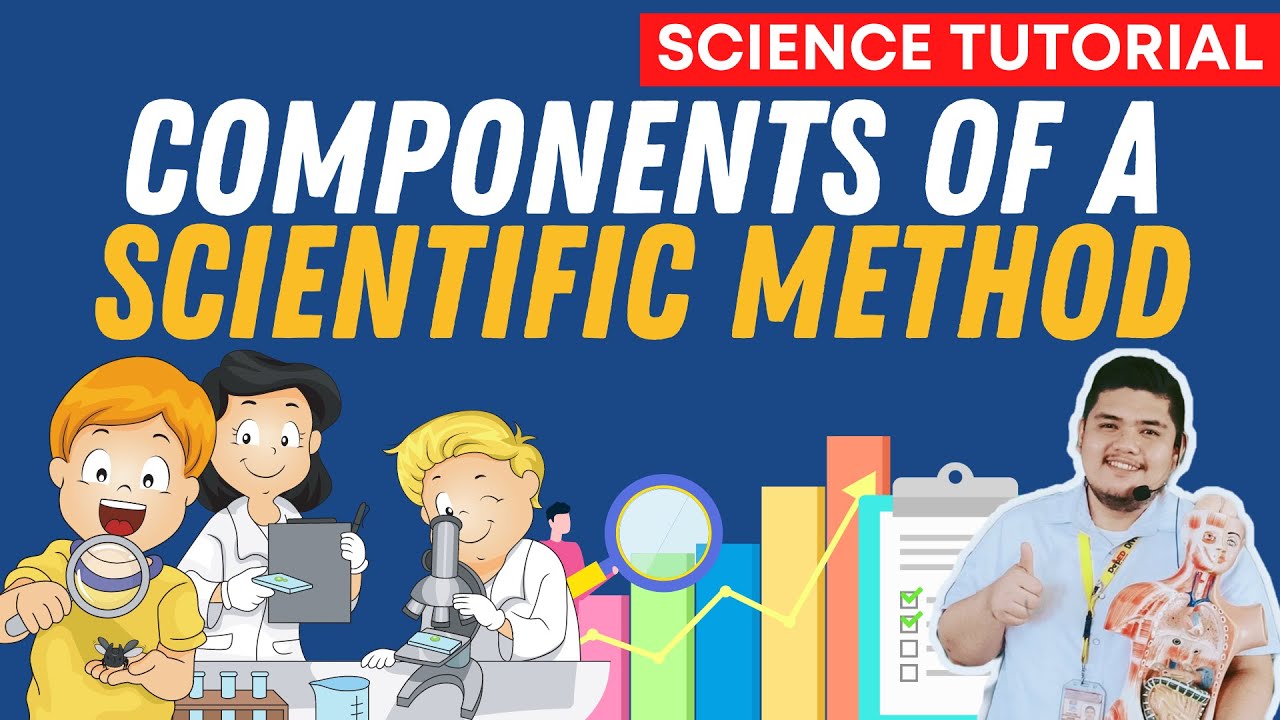Hakikat Fisika, Fisika Sebagai Proses
Summary
TLDRThis physics lesson delves into the process of scientific inquiry, introducing key skills such as observation, classification, measurement, and formulating hypotheses. It explores various laws and experiments, including free fall motion, Hooke's law, and electromagnetic phenomena, emphasizing the importance of interpreting and communicating scientific findings. The session also covers experiments on measuring the mass of solid and liquid substances, highlighting the investigative process in physics.
Takeaways
- 🔬 The third meeting material in physics involves an introduction to scientific processes and skills.
- 👀 Observation is a fundamental part of science, which involves watching and classifying phenomena.
- 📏 Measurement is a key scientific skill, allowing for the quantification of observations.
- ❓ Formulating questions and hypotheses are essential steps in the scientific method, guiding experiments and research.
- 💡 The problem-solving process in physics includes defining a problem and exploring potential solutions.
- 🧪 Experiments such as the free fall, Ohm's law, Hooke's law, and EMP experiments are used to test hypotheses and theories.
- 🌡️ The experiment on measuring the density of solids and liquids demonstrates the application of scientific methods to understand material properties.
- 🕒 An experiment to measure the flow rate of liquids is an example of how physics studies the behavior of fluids.
- 🤔 The process of observation, questioning, and investigation is crucial for scientific exploration and understanding.
- 📝 Communication is a vital part of science, where findings are shared and discussed within the scientific community.
- 🔍 The script emphasizes the importance of scientific activities in physics, highlighting the interplay between theory and experimentation.
Q & A
What is the main focus of the third meeting material in physics?
-The main focus is on the process of scientific inquiry, including observation, classification, measurement, formulating hypotheses, problem-solving, interpretation, and communication.
What are the fundamental steps in the scientific process mentioned in the script?
-The fundamental steps include observation, classification, measurement, formulating questions, hypotheses, interpreting or analyzing, and communicating findings.
What is the significance of observation in the scientific method?
-Observation is the first step in the scientific method, allowing scientists to gather information about the natural world and identify patterns or anomalies that can be investigated further.
How does classification contribute to the scientific process?
-Classification helps organize the observed data into categories, making it easier to compare, analyze, and understand the phenomena being studied.
What is the role of measurement in scientific experiments?
-Measurement provides quantitative data that can be used to test hypotheses and draw conclusions. It is essential for the accuracy and reliability of scientific findings.
Why is formulating a hypothesis an important part of the scientific process?
-A hypothesis is a proposed explanation for an observed phenomenon. Formulating a hypothesis guides the direction of the research and helps in designing experiments to test its validity.
Can you explain the importance of problem-solving in the scientific method?
-Problem-solving is crucial as it involves identifying questions or issues that need to be addressed, which then leads to the development of experiments or studies to find answers or solutions.
What does it mean to interpret or analyze data in a scientific context?
-Interpretation or analysis involves examining the collected data to draw conclusions, understand relationships, and determine whether the data supports the initial hypothesis.
Why is communication a vital part of the scientific process?
-Communication is essential for sharing research findings with the scientific community and the public. It allows for peer review, collaboration, and the advancement of knowledge.
What are some examples of scientific activities mentioned in the script related to physics?
-Examples include experiments on free-fall motion, Hook's law, electromagnetic phenomena, and measuring the density of solid and liquid substances.
How does the script relate to the concept of empirical research in physics?
-The script outlines the empirical research process in physics, emphasizing the importance of observation, hypothesis testing, and experimental validation in understanding physical phenomena.
Outlines

此内容仅限付费用户访问。 请升级后访问。
立即升级Mindmap

此内容仅限付费用户访问。 请升级后访问。
立即升级Keywords

此内容仅限付费用户访问。 请升级后访问。
立即升级Highlights

此内容仅限付费用户访问。 请升级后访问。
立即升级Transcripts

此内容仅限付费用户访问。 请升级后访问。
立即升级5.0 / 5 (0 votes)






